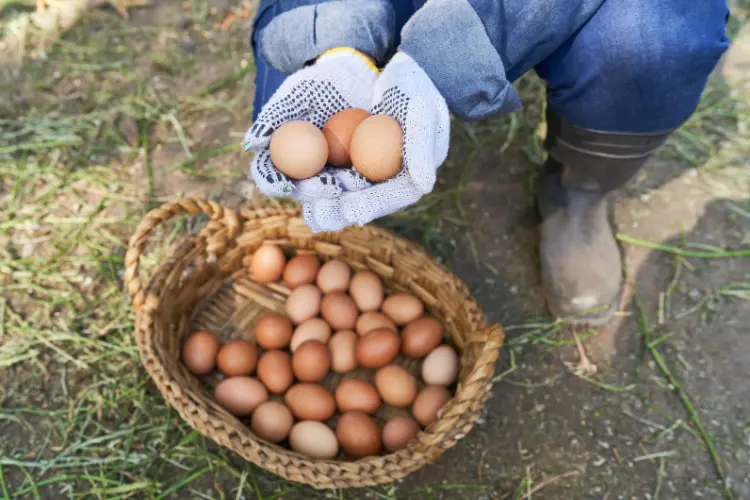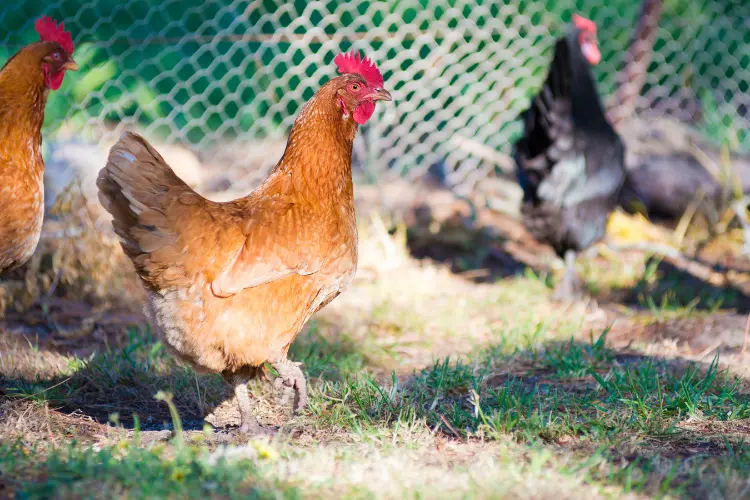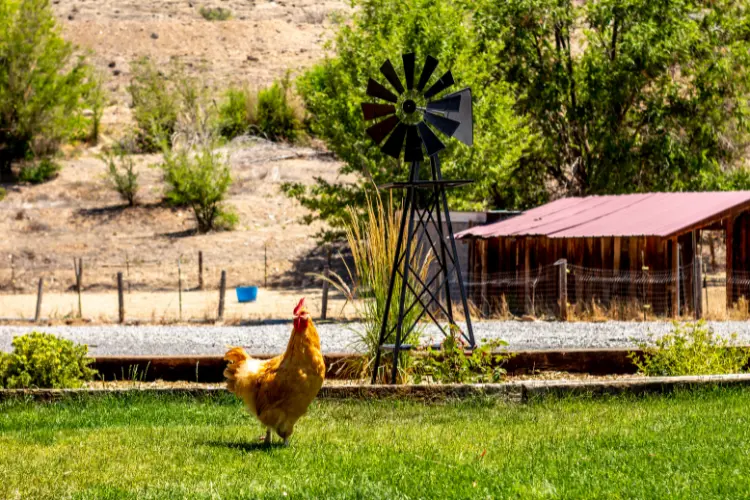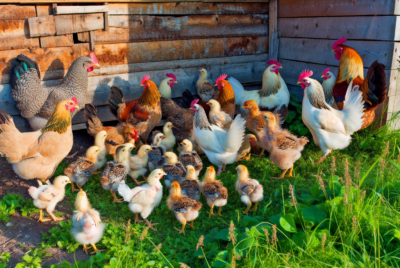The Benefits and Challenges of Urban Chicken Keeping
Ever thought about keeping backyard chickens in your urban home? It’s an idea that’s gaining popularity as people look for sustainable and rewarding ways to live in the city. But before you jump in, it’s important to know that urban chicken keeping has its share of benefits and challenges.
If you’re considering this feathered adventure, or if you’re just curious about what it entails, let’s take a closer look at the benefits and challenges of urban chicken keeping.
So in this blog post, we’ll break down the upsides and the hurdles you might encounter, making it easy to understand whether this urban farming lifestyle is right for you.
Benefits of Urban Chicken Raising
Sustainable Food Production in the City
Urban chicken keeping is a sustainable and eco-friendly approach to food production, even within the confines of the city. Your urban chickens efficiently convert kitchen scraps into valuable eggs and nutrient-rich compost, reducing waste and contributing to responsible consumption.
So, by raising your own food, you play a vital role in reducing food miles and minimizing greenhouse gas emissions associated with transportation.
Valuable Educational Opportunities
For families and children, urban chickenkeeping offers invaluable educational experiences. It provides hands-on lessons in responsibility, animal care, and the natural cycle of life.
Additionally, children have the unique opportunity to witness the hatching of chicks and actively participate in the daily care of the birds. This fosters a deeper connection to their food sources and the natural world, enriching their understanding of life processes.
Read also: Beginner’s Complete Guide to Selecting the Best Chickens
A Connection to Nature in the Urban Jungle
Amid the urban hustle and bustle, raising backyard chickens provides a unique sense of solace and connection to nature. The simple act of tending to your urban chicken flock can offer moments of calm and mindfulness.
Urban chicken keeping allows you to experience a slice of rural life right in your backyard, offering a soothing contrast to the busy city environment.
A Steady Supply of Organic, Fresh Eggs
One of the most immediate and satisfying benefits of urban chicken raising is the consistent supply of fresh, organic eggs right at your doorstep. These eggs are not only incredibly flavorful but also healthier than their store-bought counterparts. Not just for eggs, but there is also a chicken breed that is good for meat production like meat birds.
Moreover, collecting eggs daily from your egg-laying chickens is a rewarding experience that enhances your self-sufficiency even if you have just a few hens, reducing your reliance on commercial egg production.

Sustainability and Self-Sufficiency
By raising chickens in the city, you actively contribute to your own self-sufficiency and sustainability. You play a role in reducing the carbon footprint associated with food production and transportation.
This sustainable practice aligns with the growing movement towards locally sourced and environmentally responsible food production, allowing you to take an active stance in promoting a greener urban lifestyle.
Waste Reduction and Compost Production
Managing chicken manure efficiently becomes a valuable resource for your garden. Used bedding and manure can be composted and later used as nutrient-rich fertilizer.
This not only reduces waste but also enriches the soil, promoting healthier and more productive plants. Your urban chicken flock are not just consumers; they are contributors to a sustainable garden ecosystem.
Community Engagement and Sharing
Urban chicken keeping often extends beyond your backyard. It fosters a sense of community as you share knowledge, experiences, and even surplus eggs with your neighbors.
Initiatives like community chicken coops create a spirit of togetherness and collaboration, strengthening the bonds within your urban community. Sharing and helping others with your chicken-keeping journey contributes to a more connected and supportive neighborhood.
Challenges of Urban Chicken Raising
Managing Space Constraints in Urban Environments
In urban areas, space is often limited, making it challenging to provide adequate room for your chickens and even baby chicks to roam and forage, especially for laying hens. Efficient use of space is crucial. Consider coop and run design solutions that maximize space utilization.
You might even explore vertical space and employ creative approaches for those with small yards or balconies. Providing a safe and comfortable environment for your chickens, even within confined spaces, is key.
Read also: Best Chicken Coop for 10 Chickens: 2023 Reviews & Guide

Addressing Zoning Regulations and Legalities
City ordinances and zoning regulations can be a significant hurdle for urban chicken keepers like you. These rules may restrict the number of chickens allowed, coop placement, or even prohibit chickens in certain neighborhoods.
To overcome this challenge, it’s essential to conduct thorough research and understand local ordinances. Engage with local authorities and your community to advocate for chicken-friendly regulations that accommodate urban chicken keepers like yourself.
Tackling Noise Concerns
Noise can concern urban chicken keeping, especially regarding roosters and backyard hens. Roosters are known for their early morning crowing, which can disturb neighbors. Hens, while generally quieter, can produce clucking sounds and loud alarm calls.
To mitigate noise concerns, consider selecting chicken breeds known for their quieter demeanor. Additionally, invest in proper coop insulation to help reduce noise transmission and foster a more peaceful coexistence with your urban neighbors.
Effective Odor and Manure Management
The accumulation of poultry manure can lead to unpleasant odors, a common concern in urban chicken keeping. To combat this issue, establish a routine cleaning schedule for the coop. Regularly remove soiled bedding and waste to prevent odor problems.
Furthermore, you can turn chicken manure into a valuable resource through composting, reducing waste and providing nutrient-rich fertilizer for your garden.
Read also: How to Use Chicken Manure Properly in the Garden
Combatting Pest Infestations
Pests such as flies are attracted to manure and uneaten feed, posing a potential issue for urban chicken keepers. Reducing fly infestations requires a commitment to cleanliness and proper feed storage.
Regularly clean the coop, dry bedding, and promptly remove soiled bedding and wet feed. This practice will not only deter flies but also help prevent rodent problems. Secure feed and coop areas to further deter rodents like house mice and Norway rats.
Balancing Time and Commitment
Urban chicken keeping requires daily care, including feeding, cleaning, and egg collection. It’s crucial to plan for these responsibilities, especially if you have a busy lifestyle or intend to go on vacation.
Read also: How To Transport Chicken: The Best Travel Tips
Responsible chicken ownership involves time management and making arrangements for chicken care during your absence. By striking a balance between your daily commitments and chicken-keeping responsibilities, you can ensure the well-being of your flock and maintain a positive experience as an urban chicken keeper.

Conclusion
Remember, starting urban chicken keeping ultimately depends on what fits your lifestyle and goals. By understanding both the good and the not-so-easy parts, you can make informed choices and start this adventure with confidence.
Whether you’re all set to build your chicken coop or you’re just curious about the possibilities, keep in mind that, like your chickens, your experience will grow and change over time. With willingness to learn and dedication, you can find satisfaction in the unique world of urban chicken raising.
And if you’re eager to dive deeper into chicken keeping, I highly recommend checking out my comprehensive guide about what to know before getting chickens. This resource covers everything you need to know to embark on a successful and fulfilling journey as a chicken keeper. Happy reading!




